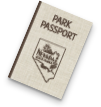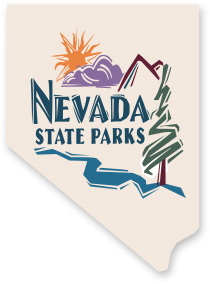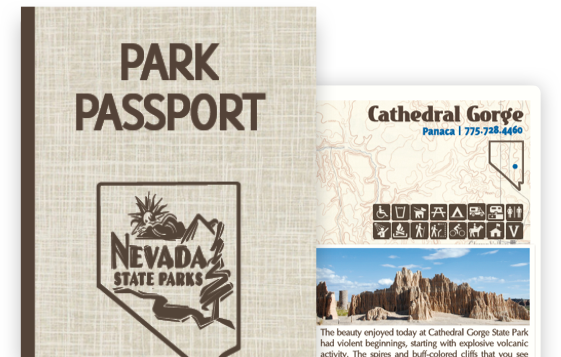Alerts
Posted August 24, 2023: Water sampling conducted by the Nevada Division of Environmental Protection confirms the existence of toxic cyanobacteria in Wild Horse and South Fork Reservoirs. Toxicity levels and locations of blooms can change rapidly. Please follow precautions listed below.
Park visitors and their pets should avoid contact with the water due to potential adverse health effects
Scientists sampling surface waters at Wild Horse State Recreation Area and South Fork State Recreation Area have identified Harmful Algal Blooms (HABs) along the shoreline of both reservoirs. The Interagency HAB Task Force – comprised of officials from the Nevada Department of Health and Human Services, the Nevada Division of Environmental Protection, Nevada State Parks, and the Nevada Department of Wildlife – are working together to ensure the public is notified to help protect the health of park visitors and their pets.
Exposure to toxic algae can occur by touching, swallowing, or inhaling affected water, and can lead to mild or potentially serious health issues. Children and pets are especially at risk. Visitors and their pets are urged to avoid swimming in the lake water until further notice. The lake will remain open for motorized boating as well as paddling.
Algal blooms can last for days or weeks and toxins can last for days after the bloom. They can occur at any time of the year but are most common in the summer – when the water is warm and stagnant. A HAB may be present if:
- The water smells rotten
- Large mats or scums are floating on the surface
- The water looks like green paint
- There are bright colors like blue, green, white, brown, or red
To protect yourself from toxic algae, avoid recreating (wading, swimming, jet-skiing, or water skiing) in water containing possible algal blooms. Keep children and pets away from the water. Do not drink, cook, or wash dishes with the affected water. If you come in contact with the water or the algal scum, wash the area thoroughly with clean water from a safe source. Fish can collect algal toxins in their bodies, but fish in Nevada likely have lower levels because blooms are irregular. If you decide to eat a fish you catch during a bloom, wash it carefully with clean water and only eat the fillets. Throw skin and internal organs in the trash, which may have higher levels of algal toxins.
Individuals who believe they may be experiencing symptoms of exposure to algal toxins should contact their local health-care provider or contact the Poison Control Center: 1-800-222-1222. To learn more about HABs, visit the Center for Disease Control and Prevention website at www.cdc.gov/habs/. To report a suspected HAB in Nevada call (888) 331-6337.
Download a HAB educational poster or brochure.
Posted June 1, 2023: Online Reservation System Coming to Nevada State Parks in September
_1.png)
Over the past several years, Nevada State Parks has welcomed a record number of visitors as more and more people turned to the outdoors as a vacation destination. In response to this increased demand, Nevada State Parks has worked to develop an online tool that will make it easier for visitors to explore Nevada, while ensuring responsible, sustainable management of the Silver State’s natural resources.
This September, Nevada State Parks will launch Reserve Nevada, a new online reservation system that will allow visitors to buy day-use passes, book campsites and cabins, purchase annual permits, and make special event reservations online. Once implemented, visitors can plan and schedule their Nevada State Park adventures in advance, knowing that their accommodations will be reserved for their visit.
“Last year, nearly four million visitors explored Nevada’s 27 beautiful state parks. With outdoor recreation on the rise, our new online reservation system will make it easier than ever to discover the beauty of Nevada.” said Bob Mergell, Nevada State Parks administrator. “Nevada’s goal is to manage park operations and protect natural resources more efficiently through Reserve Nevada, and we expect our visitors and staff will appreciate the convenience of an online experience.”
Reserve Nevada is scheduled to go live on September 1, 2023, with reservable sites being phased in over time. The first park to take reservations will be Valley of Fire State Park in southern Nevada, followed by Big Bend of the Colorado State Recreation Area near Laughlin and Washoe Lake State Park near Reno in October. The remainder of reservable sites will be online by the end of the year. As part of a pilot program, Big Bend of the Colorado will require advance reservations for day-use during a certain window of the day to help relieve traffic congestion at the park entrance. After that time window, the park will open to first-come, first-served day-use visitors. For now, other popular day-use parks, such as Sand Harbor State Park, will not offer reservations.
The reservation system will follow an 11-month rolling window, with sites opening up for reservation at 8 a.m. PST. Online camping reservations must be made at least three days in advance; however, reservations are not required to stay at a Nevada State Park. Visitors are welcome to stay at unreserved sites on a first-come first-served basis, depending on availability.
For more information about Reserve Nevada and to read a list of frequently asked questions, visit parks.nv.gov/reservations.


